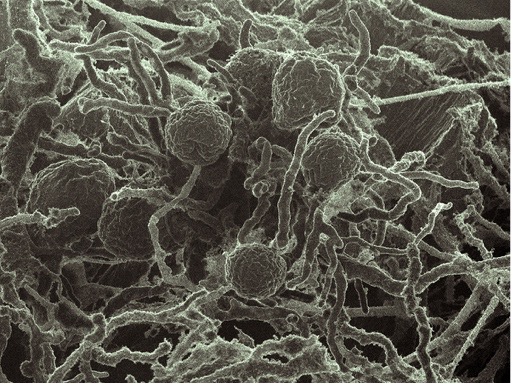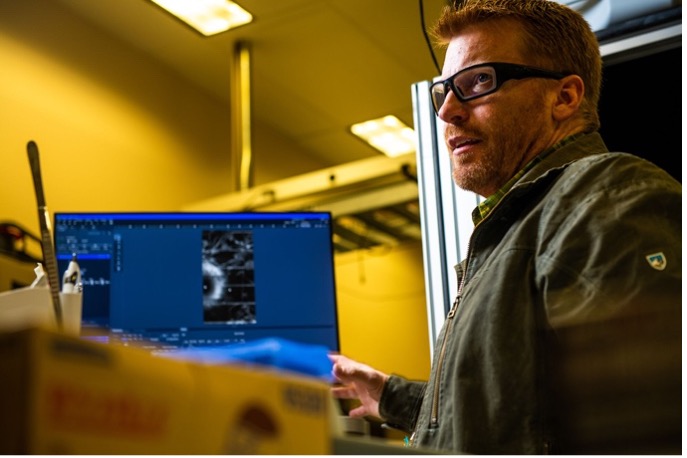Biofuels &
Bioproducts
Biofuels &
Bioproducts
Fundamental insights
into biomass processing
Fundamental insights
into biomass processing
Nature has a lot of things figured out. It’s resilient. It’s agile. And it may be the key to renewable fuels and bioproducts of the future.

By studying the smallest parts of biological systems, Pacific Northwest National Laboratory (PNNL) researchers have gained tremendous scientific insights into nature’s strengths. Our scientists take those insights and innovate ways to sustainably create the fuels and plastics we use every day.
Plants contain the most abundant raw material for biofuel and bioproduct production: lignocellulose. This primary building block of plant cell walls is one of the components that makes them so hardy. It’s also incredibly difficult to break down into useful pieces.
PNNL researchers study how the structure of lignocellulose holds secrets to its strength, and we study how it can be engineered into crops for reinforcement that promotes sustainability. Our researchers also trace which proteins microbes use to efficiently break down lignocellulose.
We study how bacteria thrive on lignin, looking for proteins that work together to deconstruct the rigid polymer in ways that avoid generating toxic byproducts. We also examine how fungi and bacteria work together to process leaves and plant matter. Our findings provide clues to the role of each consumer during decomposition.
Omics and engineering for success

Instruments and expertise in PNNL’s Biological Sciences Facility and the Environmental Molecular Sciences Laboratory, a Department of Energy, Office of Science user facility at PNNL, are critical to sequencing omics data and developing genetic tools for organism engineering. Through their work at the Department of Energy’s Joint BioEnergy Institute, for example, our researchers translate genetic sequences into biotechnology applications, such as improving fungi’s ability to secrete cellulose-deconstructing enzymes.
PNNL researchers also use metabolic engineering and omics tools to harness the natural robustness and efficiency of microbial communities to process industrial and agricultural waste. We have designed an engineered microbial consortia to convert methane and carbon dioxide from these waste streams into valuable microbial biomass—one of several starting points for biofuels and bioproducts like plastics.
Click to view our team of experts who focus on synthetic biology research in the Biology Division and the Environmental Molecular Sciences Division.